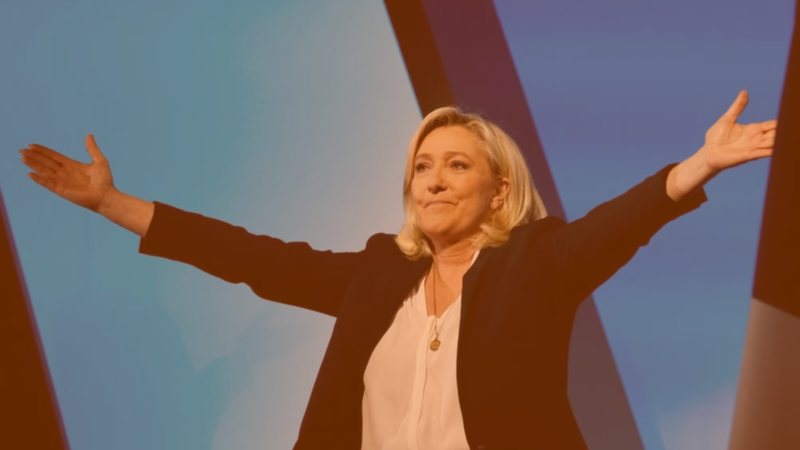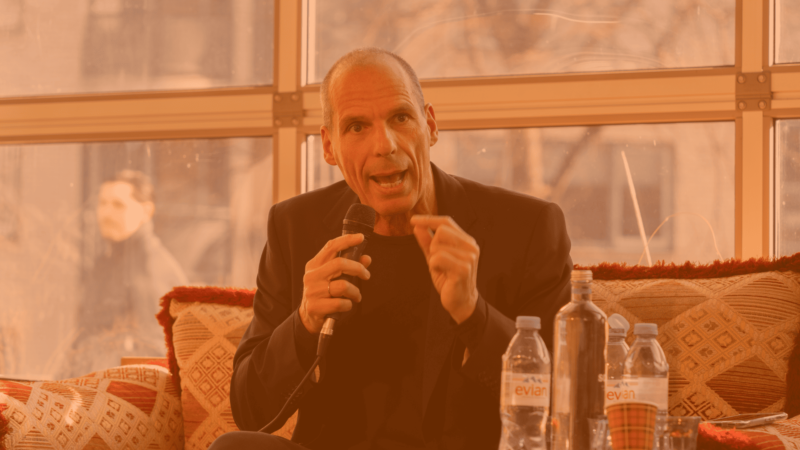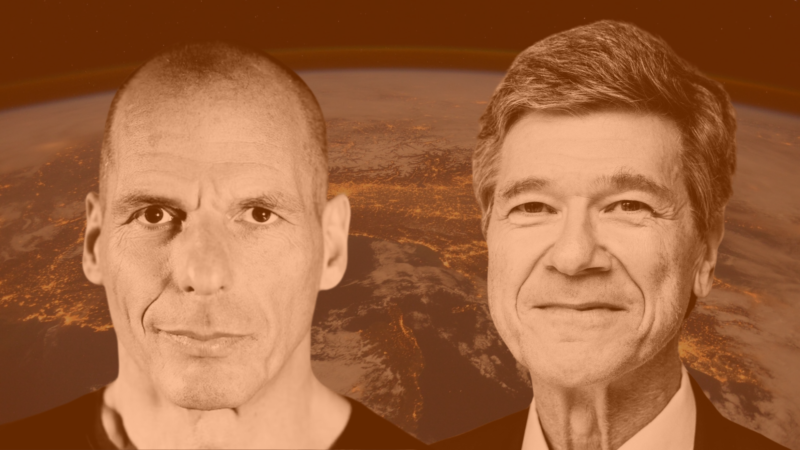International Day of Solidarity with Palestine is celebrated every November 29 since it was established in 1977. It is to commemorate the vote on the partition plan for Palestine by the United Nations General Assembly on the same date in 1947, which defined a Jewish state, an Arab state, and Jerusalem placed under international control.
With this day fresh in our memory, I would like to ask what the meaning of this solidarity is, what content to give it, how it is being demonstrated, what are its effects, and above all, has its meaning changed since October 7, 2023?
As soon as the State of Israel was created in 1948, over three-quarters of the Palestinians – 700,000 to 750,000 of the 900,000 who lived within the boundaries of the Jewish state as defined by the partition plan for Palestine – were dispossessed of their land and expelled. This was the starting point of a process of ethnic cleansing that would continue throughout Israel’s existence. For the Palestinians, the Nakba, or catastrophe, marked the beginning of exile. But it was also the beginning of the solidarity movement with Palestine, which has taken many forms over the years, but has never ceased to this day. The Palestinian refugees were welcomed in neighbouring Arab countries, where they live in camps, awaiting a return to their homeland that will never come. Today, the United Nations Relief and Works Agency for Palestine Refugees (UNRWA) counts over five million Palestinian refugees.
At that time, it was mainly a question of solidarity between states, notably the newly independent Arab nations, which had not been consulted when the State of Israel was created, and whose territorial sovereignty was regularly flouted as Israeli territory expanded beyond the 1948 borders (in Jordan, the Egyptian Sinai and the Syrian Golan in 1967, and in southern Lebanon between 1985 and 2000).

It is important to remember that the principle of the intangibility of borders (uti possidetis juris) had been applied to Africa and Asia during the process of decolonisation and the withdrawal of the European powers. In order to avoid the endless multiplication of conflicts, the former colonial borders were not called into question when new states were created. In 1964, when many countries were already independent, the Organisation of African Unity decided that the principle of the inviolability of colonial borders would be applied throughout the continent (OAU Charter). Although these borders had often been drawn according to the interests of the colonial powers, without considering those of the local populations, the application of this principle has enabled territorial disputes to be resolved on the basis of pre-existing borders.
But in the Middle East, with the secret Sikes-Picot agreements (1916) and the Balfour Declaration (1917) for the creation of a Jewish home in Palestine, the British and French proceeded to carve up the Arab regions of the Ottoman Empire and create Arab states under their domination, leading to a chronic instability in the region that continues to this day.
By leaving Palestine, the British did not hand the country over to its rightful inhabitants, but passed the torch to other colonisers from Europe. Actually, Israel is not a country that has regained its sovereignty through decolonisation, but a new and expanding European colony. It is the only state in the United Nations whose borders are not unanimously defined and recognised by the international community, even though this is an explicit condition of UN rules. This has led some to claim that Israel is a state “without limits”.
The solidarity of nations with the Palestinian people was based on the principle of self-determination of peoples, proclaimed within the framework of the United Nations and the non-aligned movement (Bandung Conference, 1955). This solidarity, active on the part of the Arab countries, initially took the form of armed conflicts with Israel (1967, 1973), but the balance of power being unequal due to American support, some had to give in, while others formed a Refusal Front.
This solidarity appeared on another front, this time economic, with the Organization of the Petroleum Exporting Countries (OPEC) oil embargo of October 1973. Although it achieved tangible results and succeeded in making Western countries tremble, it led to the creation by the US of the International Agency for Energy (IEA) and a reorganisation of the oil markets that weakened OPEC’s influence. It was during the so-called “Ramadhan war” (“Kippur war” for the Israelis) launched by Arab countries to recover the territories occupied by Israel during the Six-Day War (1967). Attacked by surprise, Israel was only able to win thanks to an American airlift. On October 16 and 17, 1973, the Arab members of OPEC met in Kuwait and decided on a unilateral 70 percent increase in the oil price per barrel and a 5 percent monthly reduction in oil production until the occupied territories were evacuated and Palestinian rights recognised. They also decided to finance the Arab-Palestinian cause. On October 20, King Faisal of Saudi Arabia announces a total embargo on deliveries to the United States and the Netherlands.
The shortage caused panic in consumer countries, where prices quadrupled. Some Arab countries called for production cuts to keep prices up. The United States refused, and tried to organise an international consumer cartel against OPEC, but failed due to opposition from France. They then threatened military intervention in the Arabian Peninsula to take control of the main oilfields. Failing that, they made the Shah’s Iran the gendarme of the Persian Gulf, six years before the Islamic Revolution. The US oil bill rises from $4 billion in 1973 to $24 billion in 1974. Following the sixth Arab Summit in Algiers (November 26-28, 1973), the United States, along with Western Europe and Japan, had to reverse their pro-Israel policies. On March 18 1974, at an OPEC meeting in Vienna, the Egyptian leader Anwar El-Sadat obtained the lifting of the embargo, while Libya and Syria refused to join the decision. Thereafter, the solidarity of the Arab states continued with their support for the Palestine Liberation Organization (PLO), which brought together all the organisations of the Palestinian resistance, in the hope of a solution within the framework of United Nations resolutions.
As colonised nations gained independence – the latest being South Africa and the former Portuguese colonies – Palestinian resistance remained the last bastion of the anti-colonial struggle. In Western countries, anti-imperialist movements had made Palestinian resistance – notably secular organisations within the PLO (PFLP, DFLP) – their banner.
Then, after the Oslo Accords (1993), the creation of the Palestinian Authority, supposed to cover the West Bank, East Jerusalem and Gaza, failed to lead to the establishment of a sovereign state. The PLO, under Israeli domination, was turned into a bureaucracy with no real power, but which became gentrified and corrupt, while certain movements continued the resistance within the Refusal Front. Over the years, Israel has sabotaged the implementation of the Oslo Accords, expanding expropriation and colonisation in the West Bank and East Jerusalem, fragmenting the Palestinian territories and installing an apartheid regime, locking Gaza under an inhuman blockade, crushing any hint of resistance and savagely repressing the intifadas. Solidarity with the Palestinian people, still alive, was exhausted in humanitarian aid and reconstruction after each destruction by the Israeli army. While Israel destroyed, others paid: Arab countries, NGOs, the European Union… This impunity, under the passive if not benevolent gaze of Western countries, has allowed Israel to become more powerful and arrogant at every stage, openly proclaiming itself an ethnic and religious state, extending its territorial ambitions and increasingly openly claiming the crushing and negation of the Palestinian people.
Under the pretext of “defending its borders”, and then as part of the “war on terror” waged by the US and their Western allies throughout the region, Israel has become accustomed to bombing its neighbours with impunity. This “war on terror”, whose victims’ number in the hundreds of thousands, if not millions, with the propaganda that has accompanied it, has resulted in the appalling trivialisation of the deaths of Arab and Muslim populations and their dehumanization. On closer examination, this dehumanisation is a continuation of the colonial order, even though it is supposed to be over. The dehumanisation of Palestinian lives lies behind the “double standards” practiced by the “international community”. It is denounced by the new generations of the post-colonial global majority, three-quarters of today’s humanity, who no longer accept living in a world still dominated by a law inherited from the colonial order. In this way, the entire United Nations system – in particular the composition of the Security Council, which gives supremacy to the Western powers, and the American veto, which blocks any ceasefire resolution – is being challenged and called for reform.
The “right” of self-defence put forward by Israel – which actually is not a right insofar as this country illegally occupies territories and deprives of its rights a people under its domination – has become the alibi for all the aggressions perpetrated by the Israeli army against the Palestinians and neighbouring countries and even beyond (Iran, Lebanon, Syria, Iraq, Yemen). For their part, the right to defend themselves is denied to the Palestinians, whose resistance to domination, however legitimate under international law, is equated with terrorism.
Before the events of October 7, 2023, apart from a few die-hards like the Boycott, Divestment, Sanctions (BDS) movement, the world seemed to have forgotten about Palestinian resistance, believing it to be definitively defeated and that Israel had triumphed in the end. Arab governments, with a few exceptions, were in the process of signing one after another the Abraham Accords, in which they recognised the State of Israel without any solution in return for the Palestinians.
The devastating violence of the Israeli army’s response to the operation carried out by the El Aqsa Brigades on October 7, 2023, methodically destroying all life in the Gaza Strip, has provoked indignation across the world and awakened solidarity with the Palestinian people through a movement of unprecedented scope, among the youth of Western countries, but above all among the post-colonial world majority. For them, the systematic practice of double standards and the dehumanisation of Palestinians by the Western media has become unbearable. They feel this injustice because they too are experiencing this dehumanisation, in Africa, Asia, Latin America and on the roads of migration, where they are dying by the thousands.
In this propaganda, the lives of the 1206 Israelis killed in this operation (including the dead hostages), many of them soldiers, are always placed far above those of the hundreds of thousands of Palestinian civilians killed in Gaza and the West Bank by the army and by the settlers, to which must be added those killed before October 7, on an almost daily basis and never counted. The unleashing of Israel’s fury seems more motivated by the fact that October 7th destroyed the myth of its invincibility, than by the desire to save the hostages.
Solidarity with the Palestinians is no longer the prerogative of states, political parties and movements, or even humanitarian NGOs, which, when they are not actively opposed, remain passive or very timid. This solidarity is expressed first and foremost on social networks and in huge demonstrations repeated tirelessly throughout the world, explicitly denouncing the genocide in Gaza. It prompted institutions such as the International Criminal Court (ICC) and the International Court of Justice (ICJ) to take a step towards recognising the genocide, without however being able to go so far as to concretise it, due to the pressure exerted by Israel. What legitimacy will these courts, already accused of punishing only criminals from the South, have if they continue to suspend international law when it comes to Israel’s crimes?
However, despite its scale and persistence, this international solidarity movement, which tirelessly calls for sanctions against Israel, an embargo on arms shipments, the imposition of a ceasefire, negotiations and the application of international law, has hit a brick wall. It seems powerless to stop Israel’s unleashing of violence, which is now targeting Lebanon, a country with no air defences, and its civilian population.
Does this mean that the solidarity movement is in vain? No. You’d think so, however, when after a year of genocide, we find ourselves powerless to prevent the massacres from continuing and spreading, and with no prospect of a just solution to this disaster.
However, when the actions of this solidarity movement are within the reach of ordinary citizens and do not depend on States or international institutions, then they lead to tangible results, such as campaigns to boycott the products and investments of companies supporting colonisation, apartheid and genocide in Israel.
As a result, this solidarity movement now goes far beyond street demonstrations to develop in multiple forms and proliferate mainly on social networks (political meetings, professional organisations, cultural initiatives, actions to re-establish historical facts and defend the memory of Palestine’s history, etc.). Among these countless initiatives, to mention just two of the most recent, is the international campaign launched by the Caregivers for Palestine movement #takecareofgaza and a petition launched by 500 mathematicians
But perhaps one of the most significant victories of this international movement is that it has brought solidarity with Palestine out of the humanitarian impasse and put the political question of Palestine’s liberation back on the agenda: it has reminded us of the colonial nature of this state and has revealed the brutality and cynicism of Israel’s supporters in power in Western countries, who do not hesitate to flout international law, democratic principles and the rule of law, and to use the fight against anti-Semitism to stifle any denunciation of Israel and any support for Palestinian resistance; it has revealed the existence of a broad Jewish anti-Zionist movement and publicised its words and courageous actions in solidarity with the Palestinians; it has relaunched the process of recognition of the Palestinian state at the UN, to which a majority of countries have now subscribed, and, above all, it has popularised the idea of a single democratic state as the only just way out of the conflict, to which more and more people within this solidarity movement now subscribe, having understood that Israel has definitively made the two-state solution impossible.
Thanks to this solidarity movement, numerous young people have entered politics. They have discovered the history of Palestinian resistance and understood the connection between this issue and their own oppression, as post-colonial subjects in the West and the global South, or as Western countries’ citizens more and more deprived of their rights under regimes that trample on the rule of law and democratic institutions and give in to the far right and fascism. They have learned that the multinational firms that invest in settlements, support the Israeli army and settlers, and sell arms to Israel, against which movements like BDS call for boycotts, are the same ones they face in their own countries when they fight against the capitalism that exploits them and destroys their lives and environment.
Do you want to be informed of DiEM25's actions? Sign up here















